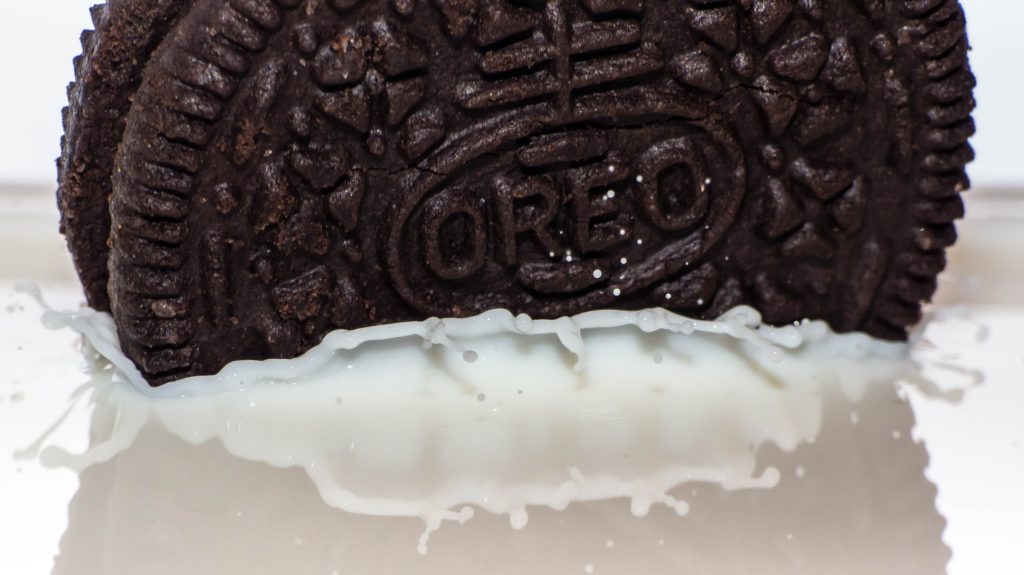Who isn’t familiar with Oreos? The cream-filled chocolate cookie can be recognized all over the world as “milk’s favorite cookie,” but it seems that Mr. Christie didn’t originally invent this product. In fact, Hydrox, who claims to be the original cream-filled cookie brand, has filed a complaint with the Federal Trade Commission (FTC) against the maker of Oreo cookies for allegedly hiding their almost identical cookie product from customers in brick-and-mortar stores.
In a recent Facebook post, Hydrox expressed their frustration regarding this issue while claiming that “the folks @oreo” are purposefully hiding their Hydrox cookies in stores. According to the company, Mondelez, who is the manufacturer of Oreos, is using their direct store distribution employees to hide Hydrox cookies in stores while they stock shelves with Oreo products. Leaf Brands, the maker of Hydrox, claims that Mondelez is doing this to avoid competition, lower their sales volume and eventually force them into discontinuing their cookie products.
In their Facebook post, Hydrox claims to have had no idea that a competitor hiding their cookies was going to be a problem until they sat down with a buyer who was interested in their product.
“A buyer for one of the largest store chains in the US sat us down and said, ‘We’re going to bring Hydrox into our stores, but you’re going to have a major issue to deal with.’ We then asked, ‘What’s the issue?’ The buyer responded, ‘Mondelez is going to hide your cookies all over our stores to make sure you don’t get any sales, in hopes of being discontinued. They will see you as a major threat to their market and will do anything to ensure you’re not successful. You’re going to have to hire people to go into each of our stores and make sure Hydrox is not being hidden.’ At that point, our jaw dropped,” wrote Hydrox in the Facebook post.
The company also attached nine pictures with their written post. Most of the pictures showed that Hydrox cookies were hidden behind hanging product strips or other cookie products. The company said that they hope the FTC will investigate this issue and that they plan on using case law in their complaint against Mondelez. However, the FTC is waiting to receive more information about this issue and Leaf Brands is currently working on building their case.
“We have not been contacted about this, but we are confident that this accusation has no merit,” a Mondelez spokesperson told Baking Business. “The Oreo brand is an iconic one, with a proud and rich history of delivering great tasting products and exciting innovations to our consumers for more than a century. This focus, and our commitment to operating with integrity, has made Oreo America’s favorite cookie.”
This dispute was bound to happen eventually as Hydrox and Oreo have been competing to be the top cream-filled cookie brand for over 100 years. Hydrox cookies were first introduced in 1908 by Sunshine Biscuits. Oreos entered the market four years after Hydrox’s debut in 1912. Since both products sport similar designs and flavoring, they were bound to butt heads in a competitive market.
However, Oreo is both exceeding Hydrox cookie sales and leading the overall cookie category. In fact, for the 52 weeks ended July 15, 2018, Mondelez experienced retail sales of $3.3 billion in the US, which is the highest profit made by any cookie manufacturer, according to Information Resources, Inc. The Oreo brand in particular, was the number one cookie brand during that period with $661.2 million in sales. Oreo Double Stuf reached the number four spot with $260.8 million in sales and Oreo Thins made it to sixth place with sales of $172 million.
However, with Hydrox’s foul play accusations hitting headlines, Modelez has their reputation to protect. With ethical consumers dominating the food industry, food companies need to be careful with how their company culture is portrayed to the public. Regardless of competition, consumers lean towards companies that stand for the right causes and are transparent, so it will be interesting to see how this FTC complaint plays out in the coming weeks.












Join or login to leave a comment
JOIN LOGIN